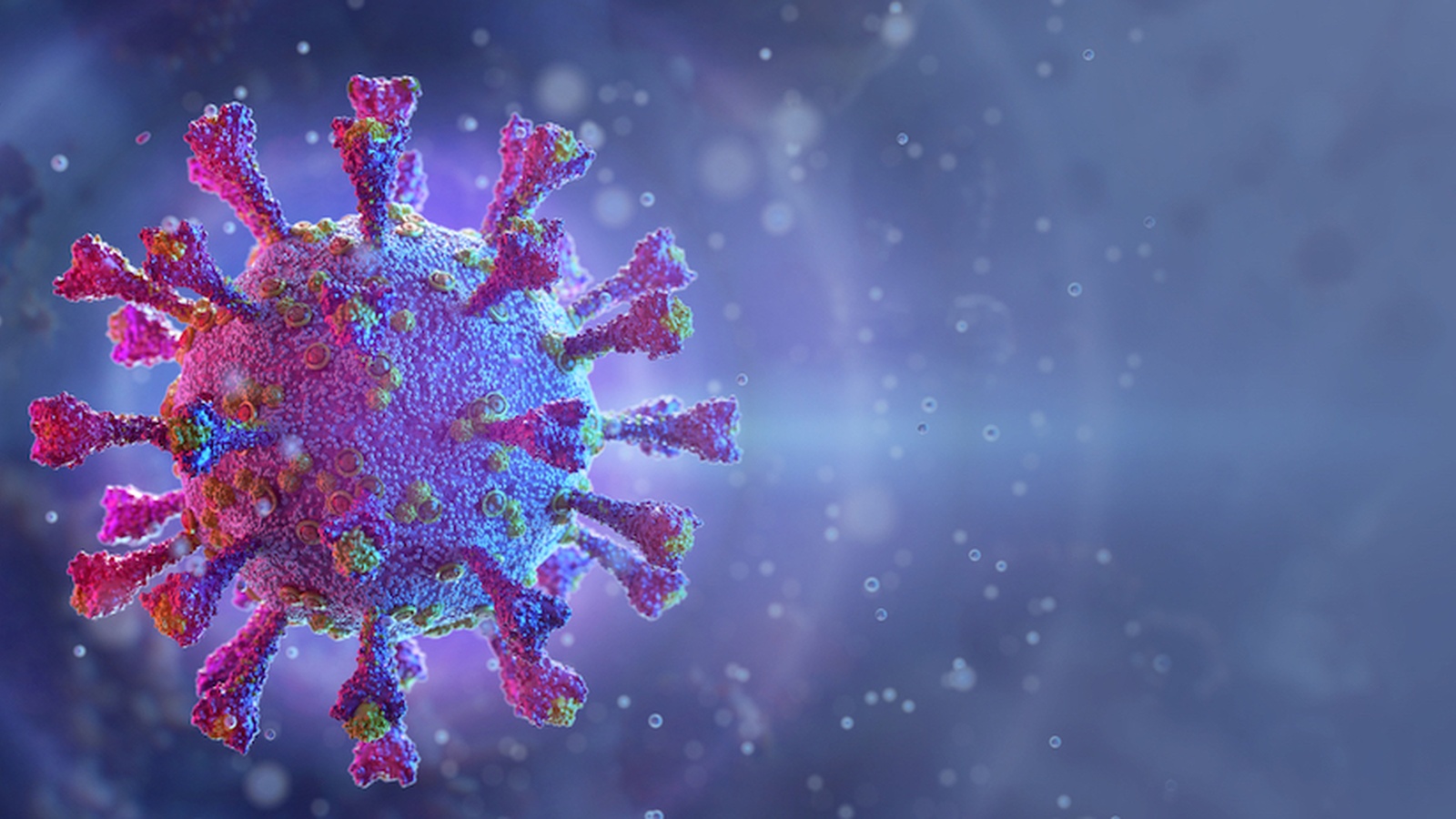COVID-19: How to Prepare Your System For a New Virus Never Seen Before
In these times of uncertainty, where misinformation is another worry we don’t need, it’s hard to know where to turn for advice. We asked our wonderful naturopath, Jodi Chapman, to share her advice and protocol for prevention and treatment, using natural herbs and essential micronutrients. She has written this incredible article to share her wisdom with the Food Matters community; we hope this gives you some direction and comfort as it did with us. We do not claim to be doctors, nor intend to replace advice given by medical professionals and the World Health Organization, but offer simple suggestions on how you can enhance your immune system. Much love, Laurentine.
Boosting your immunity is essential to staying strong in the event that you may contract the COVID-19 viral infection to ensure that your symptoms remain mild and that you recover quickly. Your first step is taken before you are affected, for your protection, by boosting your immune system to such a level that you prevent any symptoms should you be exposed to the virus.
PREVENTION: INTENSE IMMUNE AND ENERGY ENHANCING PROTOCOL
Here is a list of nutrients essential for a strong immune system, if it feels overwhelming start at the top, the first three make a big difference alone:
High dose Vitamin C with Bioflavonoids: from 3000-10,000mg per day. Ascorbic acid (Vitamin C) can be taken for its antiviral action and is one required for your whole immune system. Take it divided over the day by sipping in a bottle of water during chronic and acute infection.
Zinc Citrate: 30-90mg per day is essential with its antiviral activity and immune-boosting properties. Split this dose to avoid nausea. Best taken with food.
Vitamin A: essential for repairing mucous membranes, which includes the lungs as well as boosting poor immunity. It could make all the difference in how your lungs respond to infection. Take up to 40,000iu per day for acute infection for no longer than 1-2 weeks, then a healthy level of 10,000iu will suffice. Avoid Vitamin A during pregnancy as it may cause birth defects.
Activated B Vitamins: bypass common gene mutations that might be impacted by stress boosting your energy, mood, and immunity. To avoid nausea when taking high-dose B vitamins, introduce it slowly starting with 1 and building to 2 per day.
Additionally, Iron, Glutamine, Probiotics, and a high-quality DHA / EPA Fish Oil can help to boost your immunity and you can speak with your health care provider about what dose might be best for you.
TREATMENT: HERBS – GOLD STANDARD IN FIGHTING VIRAL INFECTIONS SYMPTOMS
Do you feel symptoms coming on? We must treat COVID-19 the way we would treat an upper respiratory tract infection in the early phase to prevent it from progressing. However, if you develop more serious symptoms, we must then pivot toward a treatment more likened to the effects of pneumonia for a safe and fast recovery.
In considering how the COVID-19 virus should be treated, first, we need to understand how the virus behaves. It invades your respiratory system, like many viruses, however, this doesn’t mean that they are the same in other ways. Understanding that this is a very new virus to the human system and is in its early stages, means your body will launch an immune response to protect itself unlike what you may have experienced before. As the virus begins to develop, early symptoms may include a fever, a sore throat, nasal congestion, headache or a dry cough.
As the disease progresses, inflammation in the lower respiratory tract causes more severe and dangerous symptoms such as pain or difficulty breathing, phlegm in the lungs causing a deeper cough, fatigue, fever, sweating and shaking chills, low body temperature and low blood pressure. Once there is moisture in the lower and upper respiratory tract, we must also consider secondary bacterial infections may develop.
As we know, those with pre-existing cardiovascular conditions or other health concerns may be more seriously affected, and the elderly, which needs to be considered when designing a treatment protocol for those individuals. If inflammation in the bronchial tree and alveoli of the lungs becomes severe enough, your oxygen levels will decrease, at which time, the condition becomes critical where ventilation may be required. It is so very important that we take advantage of the tools that we have to prevent it from progressing to this point.
Herbal antivirals, antimicrobials, expectorants, demulcents, and immune boosters are the most effective way to reduce symptoms, boost immunity, and to strengthen gut bacterial balance which is the powerhouse of your immune system, in lieu of current medical treatment. Cold-pressed concentrated herbals that are mixed to suit your needs by your naturopathic practitioner is the best way to ensure the formula designed is right for you.
Step 1 - Destroy the Virus
Antivirals are substances that inhibit the growth of or destroy viruses, so they are an absolute must to have in your toolbox. These include herbs such as:
- Aloe vera, neem leaf, St John’s wort, and thuja.
Step 2 - Boost your immunity
Immune enhancers are substances that enhance your immune system and include beautiful herbs such as:
- Echinacea, Andrographis, astragalus, Siberian ginseng, baptisia, cat’s claw, neem leaf, pau d’arco, and poke root.
Step 3 - Protect your lungs
Demulcents and anti-inflammatories are herbs that have a soothing and anti-inflammatory effect on mucous membranes of the respiratory tract and are absolutely essential at this time. They may save your life. These herbs include:
- Aloe, Andrographis, ashwagandha, cat’s claw, echinacea, eyebright, ginger, goldenrod, goldenseal, licorice, myrrh, poke root, Rehmannia, yarrow, and more.
Step 4 - Destroy secondary bacterial Infections
Any mucus buildup will leave you open to a bacterial infection that turns the mucus yellow or green. Antimicrobials are our best defense against this to prevent an even bigger fight for your immune system. Some amazing herbs that are my favorites are in this group such as:
- Goldenseal, myrrh, barberry, Oregon grape, neem leaf, St. John’s wort, thuja, thyme, and yarrow.
Step 5 - Dry the mucous to slow the infection
Anticatarrhal herbs are plants that reduce the formation of catarrh or phlegm (pathogenic mucus secretion). They are absolutely brilliant at shortcutting a viral or bacterial infection by changing the environment in which they breed. The ones I love and find the most effective are:
- Elderflower, eyebright, goldenrod, goldenseal, and mullein.
Step 6 - Kill the cough
Spasmolytics are a type of herb that relieves the smooth muscle of the lungs responsible for the involuntary spasming cough. This type of cough might be more likely produced when the cough is dry and irritating, perhaps in upper respiratory tract infections, to be used in the earlier phases of illness. Examples of these herbs would be:
- Cramp bark, elecampane, coleus, ginger, marshmallow, motherwort, passionflower, sage, white horehound, yarrow, and more.
Expectorants are a type of herb that helps either clear excessive mucus from the lungs by altering the viscosity of mucus or improving the cough reflex. These are best for a wet deep cough whose purpose is to clear a congested chest, best for lower respiratory tract infections and more severe cases of the disease. These herbs are wonderful in reducing infection length by helping the chest stay dry. Herbs such as:
- Elecampane again, licorice, mullein, pleurisy root, thyme, and white horehound are beautiful to use here.
Step 7 – Fight off fever
Antipyretics will be essential to reduce fever and can make you feel a whole lot better sooner. These include herbs such as:
- Andrographis, baptisia, neem leaf, Rehmannia, and yarrow.
Additionally, supporting your adrenals and strengthening your heart can aid in fighting against viral infections. Siberian ginseng, astragalus, ashwagandha, licorice, neem leaf, and Rehmannia are wonderful for helping your adrenals cope with the stress and strain of infection. Andrographis, goldenseal, goldenrod, elderflower, St. John’s wort, neem leaf, thuja, pleurisy root, ginger, mullein, Siberian ginseng, licorice, echinacea, thyme, and marshmallow are all fantastic herbs to support a healthy heart function. Your health practitioner will be able to advise how these may be of importance to you.
If there were ever a time to put your health first, this is it. Be prepared. Understand your immune system and the power you have in making a change for the better, right now. Reach out for help if you need a hand to take care of your health, and that of your family. We’ll get through this together.
If this list feels overwhelming don’t worry. Go speak with your naturopath, herbalist, or integrative practitioner at your local clinic or health food store and they will be able to recommend the best products that integrate the nutrients and herbs above or be able to mix them up for you. Nature has everything ready for us at this time.
Herbal Contraindications:
Andrographis: Contraindicated in pregnancy. Astragalus: Not advisable in acute phase of infections. Barberry: Contraindicated in pregnancy. Cat’s claw: Caution in pregnancy and lactation. Coleus: Caution in hypotension and when used with prescribed medication and peptic ulcer. It may potentiate many drugs, especially hypotensive and antiplatelet drugs. Echinacea: Caution in transplant patients taking immunosuppressive drugs; short term therapy only. Elecampane: Contraindicated in pregnancy and lactation. Ginger: A daily dose of 2g of dried ginger should not be exceeded during pregnancy. Goldenseal: Contraindicated in pregnancy. Hawthorn: Not to be used with betablockers and other hypotensive drugs. Modification of drug dose may be required. Licorice: Contraindicated in hypertension, liver cirrhosis, and severe kidney insufficiency. Avoid in elderly patients suffering with hypokalemia, cardiac, renal or hepatic disease. Contraindicated in pregnancy. Motherwort: Contraindicated in pregnancy. Myrrh: Contraindicated in pregnancy. Neem leaf: Contraindicated in pregnancy. Oregon grape: Contraindicated in pregnancy. Pau d’arco: Contraindicated in pregnancy. Avoid in patients on anti-coagulant therapy. Poke root: Contraindicated in pregnancy and lactation. Contraindicated in lymphocytic leukemia and gastrointestinal irritation. Do not use with immunosuppressive drugs. Sage: Contraindicated in pregnancy and lactation. St John’s wort is contraindicated with the following drugs: warfarin, digoxin, and cyclosporine, as well as indinavir and related anti-HIV drugs. Use with caution when taking SSRI medications. Thuja: Contraindicated in pregnancy and lactation.
Do you have a passion for nutrition & natural healing?. Learn more about the Food Matters Nutrition Certification Program here.










